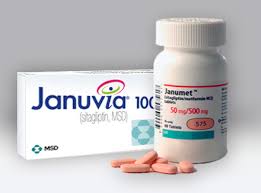Merck & Co. said the U.S. FDA had rejected its additional non-disclosure agreement to append cardiovascular data of a diabetes treatment Januvia® (sitagliptin), which helps patients’ body release more insulin to lower blood sugar.

Januvia is a dipeptidyl peptidase 4 (DPP-4) inhibitor indicated for adults with type-2 diabetes, as a subordinate to diet and exercise. It won its first FDA approval in 2006. Merck has also produced Janumet® (sitagliptin and metformin HCl), an antidiabetic combination medicine, and Janumet XR® (sitagliptin and metformin HCl extended-release).
When orally taken, Januvia controls high blood sugar, helping to prevent kidney damage, blindness, nerve problems, loss of limbs, and sexual function problems.
The company said it received disapproval from the FDA, including data from Phase III TECOS (Trial Evaluating Cardiovascular Outcomes with Sitagliptin) in the prescribing information of sitagliptin-containing medicines.
“Merck is reviewing the letter and will discuss next steps with the FDA.” The company said last Friday. Merck's shares were down 1.1 percent at $62.50 before the bell on the same day the application for cardiovascular was rejected.
Januvia and Janumet both achieved significant product sales last year as Januvia finished 2016 generating $3.9 billion, up 1 percent from $3.86 billion a year earlier. Janumet racked up $2.2 billion last year, a 2 percent increase from $2.15 billion in 2015.
Merck attributed the increase to sales growth in the U.S. that was partly offset by lower sales in Japan due to the timing of shipments.
Results from Trial Evaluating Cardiovascular Outcomes with Sitagliptin (TECOS) in April 2015 showed that Merck showcased a 14,724-patient study suggesting Januvia achieved its primary breaking point of the composite cardiovascular endpoint, while secondary breaking points showed no increase in hospitalization for heart failure in the sitagliptin group versus placebo.
Researchers from University of Oxford Diabetes Trials Unit and the Duke University Clinical Research Institute who led TECOS, Merck and other participants published the results of the study in the journal Diabetes Care, by the American Diabetes Association.
They concluded that older patients with well-controlled type 2 diabetes and cardiovascular disease, who took sitagliptin, raised no significant safety concerns. But it should not be used in patients with type 1 diabetes or for the treatment of diabetic ketoacidosis.

